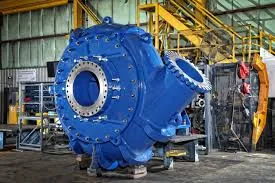Polish
- Afrikaans
- Albanian
- Amharic
- Arabic
- Armenian
- Azerbaijani
- Basque
- Belarusian
- Bengali
- Bosnian
- Bulgarian
- Catalan
- Cebuano
- Corsican
- Croatian
- Czech
- Danish
- Dutch
- English
- Esperanto
- Estonian
- Finnish
- French
- Frisian
- Galician
- Georgian
- German
- Greek
- Gujarati
- Haitian Creole
- hausa
- hawaiian
- Hebrew
- Hindi
- Miao
- Hungarian
- Icelandic
- igbo
- Indonesian
- irish
- Italian
- Japanese
- Javanese
- Kannada
- kazakh
- Khmer
- Rwandese
- Korean
- Kurdish
- Kyrgyz
- Lao
- Latin
- Latvian
- Lithuanian
- Luxembourgish
- Macedonian
- Malgashi
- Malay
- Malayalam
- Maltese
- Maori
- Marathi
- Mongolian
- Myanmar
- Nepali
- Norwegian
- Norwegian
- Occitan
- Pashto
- Persian
- Polish
- Portuguese
- Punjabi
- Romanian
- Russian
- Samoan
- Scottish Gaelic
- Serbian
- Sesotho
- Shona
- Sindhi
- Sinhala
- Slovak
- Slovenian
- Somali
- Spanish
- Sundanese
- Swahili
- Swedish
- Tagalog
- Tajik
- Tamil
- Tatar
- Telugu
- Thai
- Turkish
- Turkmen
- Ukrainian
- Urdu
- Uighur
- Uzbek
- Vietnamese
- Welsh
- Bantu
- Yiddish
- Yoruba
- Zulu
Telephone: +86 13120555503
Email: frank@cypump.com
gru . 11, 2024 12:19 Back to list
septic sump pump
Understanding Septic Sump Pumps A Comprehensive Guide
In residential plumbing, the efficient disposal of wastewater is crucial for maintaining a clean and functional living environment. One key element in this system is the septic sump pump. While many homeowners may not be intimately familiar with the specifics of these devices, understanding their function, importance, and maintenance can significantly enhance the longevity and effectiveness of your septic system.
What is a Septic Sump Pump?
A septic sump pump is a submersible pump designed to remove groundwater and wastewater from a septic system. It is typically used in homes that experience flooding or have a high water table, where conventional septic systems may struggle. The primary function of a sump pump is to prevent water accumulation in the septic tank and maintain the proper functioning of the system. By pumping excess water away, these devices help to avoid overflow and potential contamination of the surrounding environment.
How Does a Septic Sump Pump Work?
The operational mechanism of a septic sump pump is relatively straightforward
. When water levels in the sump pit (where the pump is installed) reach a certain height, a float switch activates the pump. This triggers the pump to draw water from the pit and discharge it away from the foundation of the home or septic system.Most sump pumps are submersible, meaning they are designed to operate underwater, which protects the motor from damage. They are typically made of durable materials such as cast iron or thermoplastic, ensuring they can withstand harsh conditions over time.
Importance of Septic Sump Pumps
1. Flood Prevention One of the primary reasons for installing a sump pump is to prevent flooding in basements and crawl spaces. Excess water can lead to significant structural damage, mold growth, and costly repairs.
2. Groundwater Management In areas with a high water table, maintaining the lowest possible groundwater level is essential. A septic sump pump actively manages these levels, preventing issues that may arise from saturated soil around the septic system.
septic sump pump

3. System Longevity By preventing the septic tank from becoming overloaded with excess water, a sump pump contributes to the overall health of the septic system. This can prolong the life of the tank and associated components, reducing the need for expensive repairs or replacements.
4. Environmental Protection Properly functioning septic systems are vital for environmental safety. A sump pump ensures effective waste management, preventing the overflow of untreated waste into the surrounding environment, which can pose health risks.
Maintenance of Septic Sump Pumps
Regular maintenance is crucial for ensuring the proper functioning of septic sump pumps. Here are a few key maintenance tips
- Routine Inspections Homeowners should inspect their sump pumps regularly, checking for any signs of wear, debris buildup, or issues with the float switch. - Testing the Pump Periodically test the pump by pouring water into the sump pit to ensure it activates and discharges effectively.
- Cleaning the Pit Ensure the sump pit is free of debris and sediment that may obstruct the pump's operation. A clean pit enables smooth water flow and effective functioning.
- Check the Power Source Since sump pumps rely on electricity, it's essential to ensure that the power supply is consistent and reliable. In areas prone to power outages, consider installing a backup battery source.
- Professional Servicing Scheduling regular professional inspections can help identify potential issues before they become costly problems. Professionals can provide deep cleaning and maintenance services that are difficult for homeowners to perform on their own.
Conclusion
In summary, a septic sump pump is an indispensable component of residential plumbing systems, particularly in areas susceptible to flooding or high water tables. By understanding how these pumps work, their importance, and key maintenance practices, homeowners can ensure a well-functioning septic system that protects both their property and the environment. Investing time in proper maintenance can lead to lasting benefits, safeguarding your home and enhancing the effectiveness of your wastewater management system.
-
High-Efficiency Submersible Effluent Pump for Sewage & Wastewater Solutions
NewsJul.08,2025
-
High Quality CH Warman Slurry Pump Factory - Leading Horizontal Slurry Pump Supplier
NewsJul.08,2025
-
Hot Sale Chemical Circulating Pump – Efficient & Durable Slurry Circulating Pump Solutions
NewsJul.08,2025
-
High-Efficiency Submersible Dredge Pump for Sand & Gravel Durable Dredge Slurry Pumps Solutions
NewsJul.07,2025
-
Wholesale Slurry Pump Impeller Supplier – High-Quality & Efficient Pump Parts for Enhanced Performance
NewsJul.07,2025
-
High-Efficiency Water Submersible Pumps Reliable Water Pump for Potable Water Supply
NewsJul.06,2025










